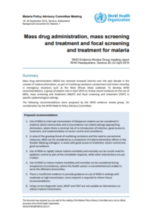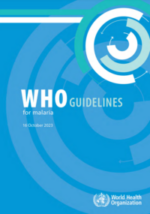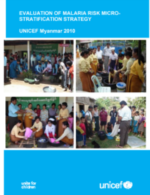DEEP DIVE
Targeted Test and Treat (TTaT) strategies
11/11/2020
21/03/2024
This is an active Deep Dive and we welcome your contributions! If you are currently involved or planning research activities on Targeted Test and Treat (TTaT) strategies please contact MESA (mesa@isglobal.org) or add your project to the database.
——
Targeted Test and Treat (TTaT) strategies for malaria are defined by WHO as testing a sub-population at high risk of infection with a parasitologic test, and treating confirmed malaria cases to reduce transmission (risk factors include demographic, occupational and exposure characteristics).
In malaria endemic countries, there are population groups whose occupational exposures in specific work sites –such as forests, mining areas, plantations and military encampments– or outdoor leisure activities put them at higher risk of malaria infection. However, there is still very limited evidence to show whether providing these high-risk groups full treatment courses of antimalarials through TTaT interventions would help reduce transmission.
A variant of the TTaT strategy is testing and treating migrants and visitors passing through international or national ports of entry. Testing for malaria at ports of entry to prevent importation of malaria into the country is actively promoted in various subregional elimination strategies, and yet there has been no review of evidence to demonstrate the appropriateness of this approach, nor has there been a review of the acceptability or feasibility of this strategy that could guide implementation considerations.
The WHO Global Malaria Programme is currently developing new Guidelines for Malaria Elimination to provide policy advice to countries. Evidence-based recommendations on the use and implementation of TTaT interventions will be included in these guidelines.
With the aim of facilitating the work of the Malaria Elimination Guidelines Development Group, this deep dive compiles the landscape of recent and ongoing research in malaria TTaT strategies and provides an overview of the projects’ main characteristics.

Total
projects

Total funding
amount



